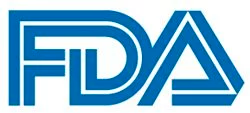News
Article
FDA Grants Orphan Drug Designation to NXC-201 for AL Amyloidosis
Author(s):
The FDA has granted orphan drug designation to the next generation BCMA-directed CAR T-cell therapy NXC-201 for the treatment of patients with amyloid light chain amyloidosis.

The FDA has granted orphan drug designation to the next generation BCMA-directed CAR T-cell therapy NXC-201 (formerly HBI0101) for the treatment of patients with amyloid light chain (AL) amyloidosis.1
“We are pleased to receive FDA’s orphan drug designation in AL amyloidosis for NXC-201, the only clinical-stage CAR-T cell therapy in development for AL amyloidosis,” Ilya Rachman, MD PhD, executive chairman of Nexcella, stated in a press release. “We are thrilled to potentially expand therapeutic options for relapsed and refractory AL amyloidosis patients, where we have observed to date in our NXC-201 clinical trials a 100% hematologic response rate and demonstrated organ responses in patient hearts, livers and kidneys, for AL amyloidosis patients who received a median of 6 earlier treatments that previously failed to halt the disease.”
NXC-201 is currently under evaluation in the phase 1b/2a NEXICART-1 trial (NCT04720313) in patients with relapsed/refractory multiple myeloma.2
To be eligible for enrollment, patients at least 18 years of age must have relapsed/refractory multiple myeloma following at least 3 prior lines of therapy, including a proteasome inhibitor, an immunomodulatory drug, and at least 1 antibody therapy. ECOG performance status of 0 to 2 and measurable disease, including at least 1 of the following: serum M-protein level of at least 0.5 g/dL, urine M-protein of at least 200 mg/24h, serum free light chain (FLC) level of at least 5 mg/dL provided serum FLC ratio is abnormal, an evaluable plasmacytoma, and bone marrow plasma cells greater than 20% of total bone marrow cells, were also required. Regarding prior therapy, patients also needed to experience resolution of any non-hematologic toxicities, excluding alopecia and grade 3 neuropathy, to grade 2 or less in severity.
The following doses are being evaluated in dose escalation: 150 x 106 CAR-positive T cells, 450 x 106 CAR-positive T cells, 800 x 106 CAR-positive T cells, and 1200 x 106 CAR-positive T cells. In the dose-expansion portion of the trial, patients will receive between 450 x 106 and 800 x 106 CAR-positive T cells.
Determination of the maximum tolerated dose of NXC-201 in part A and confirmation of the selected dose tested for part B are the primary objectives of the study. Secondary objectives include 2-year overall survival and progression-free survival rates.
In May 2023, results on the first 8 patients enrolled to NEXICART-1 were presented at the 2023 Annual Meeting of The American Society of Gene and Cell Therapy,3 revealing an objective response rate of 100% (n = 8) and a complete response rate of 63% (n = 5) in patients with AL amyloidosis who were relapsed or refractory to daratumumab (Darzalex) following a single infusion of NXC-201 at doses ranging from 150 x 106 to 800 x 106 CAR-positive T cells.
As of data cutoff on May 11, 2023, 1 responder experienced a duration of response exceeding 1 year, at 16.5 months. Moreover, the organ response rate was 75%, and rapid organ response is thought to be a surrogate marker for reduction of free light chain toxicity.
Regarding safety, NXC-201 was well tolerated, with no instances of immune effector cell–associated neurotoxicity syndrome or grade 4 cytokine release syndrome.
“We believe one-time treatment NXC-201 could offer AL amyloidosis patients a convenient therapeutic option,” Gabriel Morris, president of Nexcella, added.
Findings from an additional 30 to 40 patients treated with the recommended phase 2 dose of the agent of 800 x 106 CAR-positive T cells will be presented at the upcoming 2023 IMS Annual Meeting and submitted to the FDA in support of an investigational new drug application for ongoing study of the agent.4
References
- U.S. Food and Drug Administration approves orphan drug designation for Nexcella NXC-201 as a treatment for amyloid light chain (AL) amyloidosis. News release. Nexcella, Inc. September 21, 2023. Accessed September 21, 2023. https://nexcella.com/2023/09/21/u-s-food-and-drug-administration-approves-orphan-drug-designation-for-nexcella-nxc-201-as-a-treatment-for-amyloid-light-chain-al-amyloidosis/
- NXC-201 (formerly HBI0101) multiple myeloma. ClinicalTrials.gov. Updated May 3, 2023. Accessed September 21, 2023. https://classic.clinicaltrials.gov/ct2/show/NCT04720313
- Nexcella announces positive NXC-201 clinical results at ASGCT: 100% overall response rate in DARZALEX-relapsed/refractory AL amyloidosis with zero ICANS in ongoing NEXICART-1 phase 1b/2a clinical trial. News release. Nexcella, Inc. May 21, 2023. Accessed September 21, 2023. https://nexcella.com/2023/05/21/nexcella-announces-positive-nxc-201-clinical-results-at-asgct-100-overall-response-rate-in-darzalex-relapsed-refractory-al-amyloidosis-with-zero-icans-in-ongoing-nexicart-1-phase-1b-2a-clinical-trial/
- Nexcella announces additional NXC-201 AL amyloidosis clinical data accepted for oral presentation at the 20th International Myeloma Society Annual Meeting (September 27-30, Athens Greece). News release. Nexcella, Inc. August 16, 2023. Accessed September 21, 2023. https://nexcella.com/2023/08/16/nexcella-announces-additional-nxc-201-al-amyloidosis-clinical-data-accepted-for-oral-presentation-at-the-20th-international-myeloma-society-annual-meeting-september-27-30-athens-greece/









